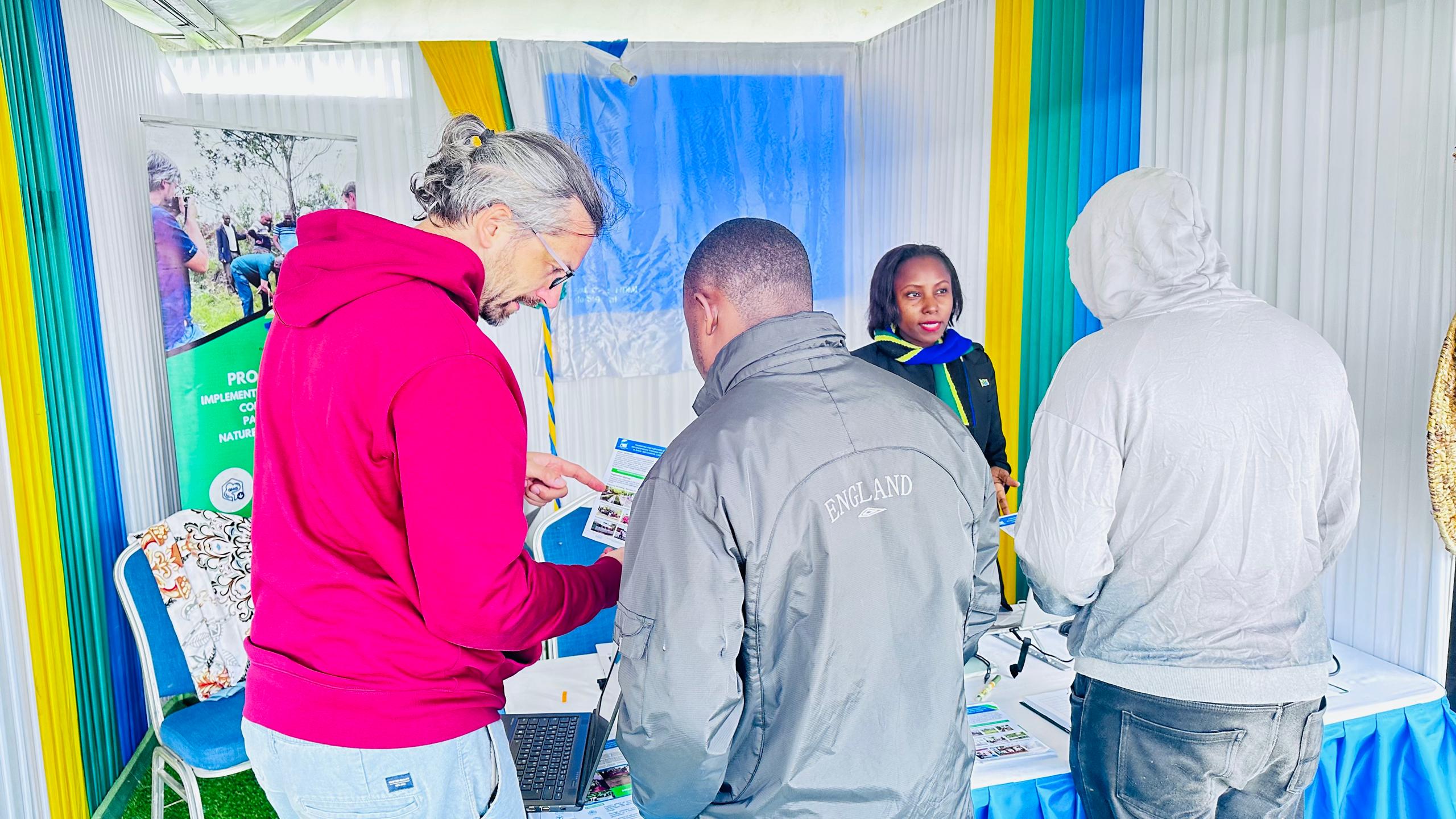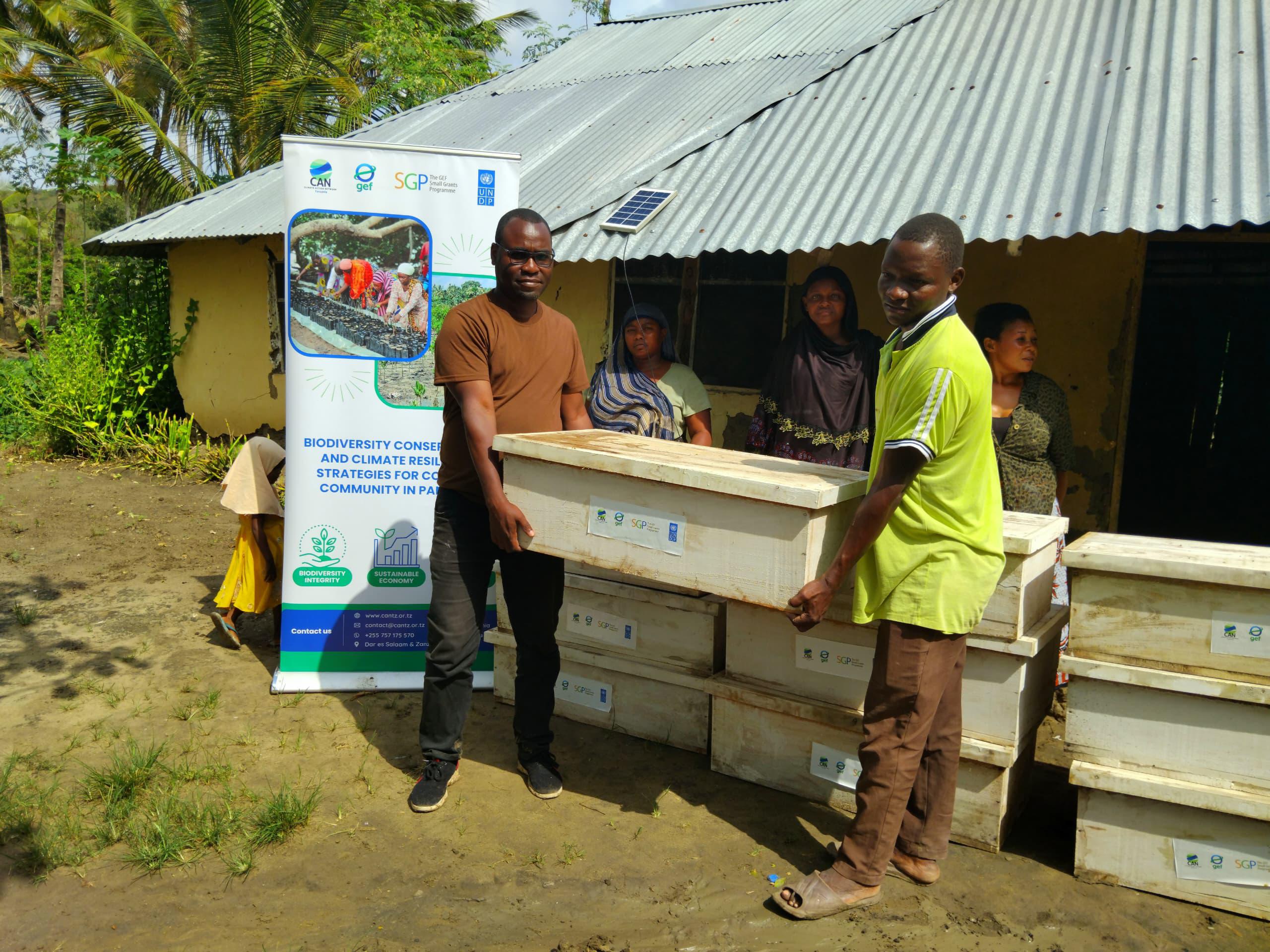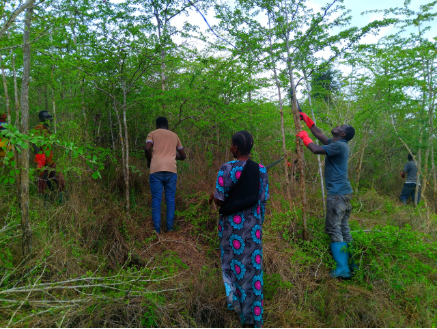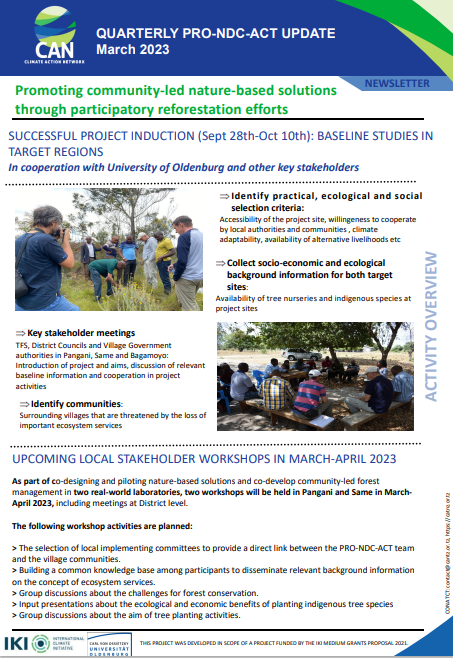Promoting Community-Led Nature-Based Solutions through Reforestation Efforts in Pangani District, Tanga Region and Same District, Kilimanjaro Region: PRO-NDC-ACT
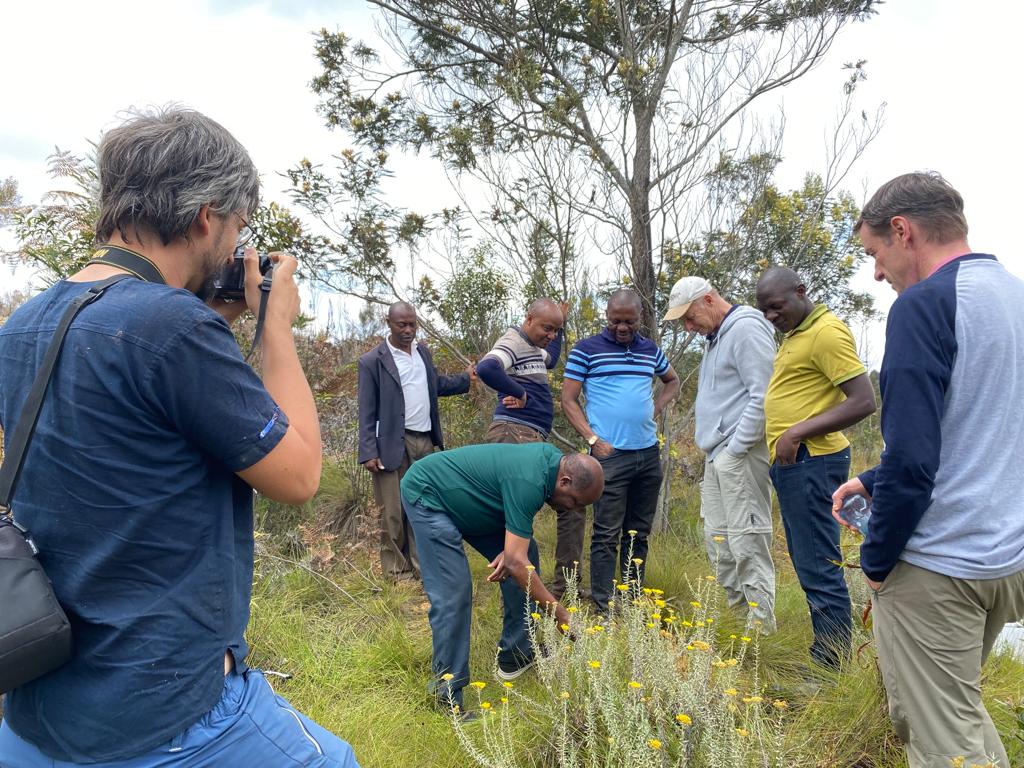
Variability in weather conditions such as intense rainfall events or dry spells pose serious risks for vulnerable communities and call for urgent action in order for them to adapt to these changes and become more climate resilient through nature-based solutions. However, to this date, forests provide over 85% of Tanzania’s energy supply driving cascading effects of deforestation fueled mainly by unsustainable practices in agriculture, livestock keeping and charcoal production. It is key to break the downward spiral of deforestation by identifying spaces for reforestation and facilitating sustainable natural resources. Cooperating with Carl von Ossietzky University of Oldenburg, the upcoming PRO-NDC-ACT project aims to promote ambitious, participatory and community-led NDC (nationally determined contributions) implementations. They shall be implemented by introducing nature-based solutions through community-led participatory and restoration efforts in different sites in coastal and northeast Tanzania. In total, the project’s objective is to establish 500 ha of near-natural community-based reforestation sites by 2025, leading to reductions in GHG emissions, lower climate risks for vulnerable communities, as well as enhanced ecosystem services.The project is funded by the International Climate Initiative of the German Federal Government to the amount of around 520,000 Euros. The community-led real-world laboratories will involve two participatory reforestation and mangrove restoration initiatives in which community members co-develop and pilot such nature-based solutions, simultaneously linking national and local levels by engaging with local government authorities to agree upon specific development objectives. The scientifically involved real-world labs will build on baseline studies that identify selection criteria and collect socio-economic and ecological background information under consideration of soil and environmental conditions and expected climatic changes. Furthermore, communities that are threatened by important ecosystem goods and services will be identified. To ensure the success of the reforestation activities, they will be continuously monitored over the next coming years. Needs regarding the target of afforestation, selection of sites and species, and restoration will be assessed together with local community members in a participatory manner. CAN Tanzania will moreover train them on the importance and ways to protect them for enhanced ecosystem services. Common learning processes will be monitored, evaluated, and facilitated in scope of the project. CAN Tanzania will organize and document national stakeholder processes and workshops on how to mainstream reforestation and disseminate guidelines on local initiatives for NDC implementation. Key target groups involve local government authorities, CSOs and community members such as farmers, woodcutters and charcoal producers, fishers, women and youth, who can benefit from increased resilience to climate risks, climate literacy and enhanced ecosystem services. The project and related activities have paid attention to gender mainstreaming and participation through a number of measures. CAN Tanzania will target real-world laboratories specifically to women by using participatory and gender-sensitive approaches. In all project sites women, poor, aged and youth groups shall be given opportunities to take part both in reforestation activities and capacity-building workshops on ecological forest management and sustainable use of forest resources, to additionally strengthen ownership and a spirit of community and solidarity. The PRO-NDC-ACT project will add value to ambitious and participatory NDC implementation at the community level. It enhances ecosystem services and forest management practices important for livelihood diversification, while also building a climate-resilient Tanzanian society. Learn more about the project: https://uol.de/en/ecoeco/pro-ndc-act Real-world laboratories:
Co-designing nature-based solutions and promote community-led, participatory forest management practices
Demonstration projects on reforestation and ecosystem restoration:
Planting indigenous tree and mangrove species
Knowledge generation and outreach:
Holding national stakeholder workshops to disseminate best practices and lessons learned
Project Impact
CAN on the field
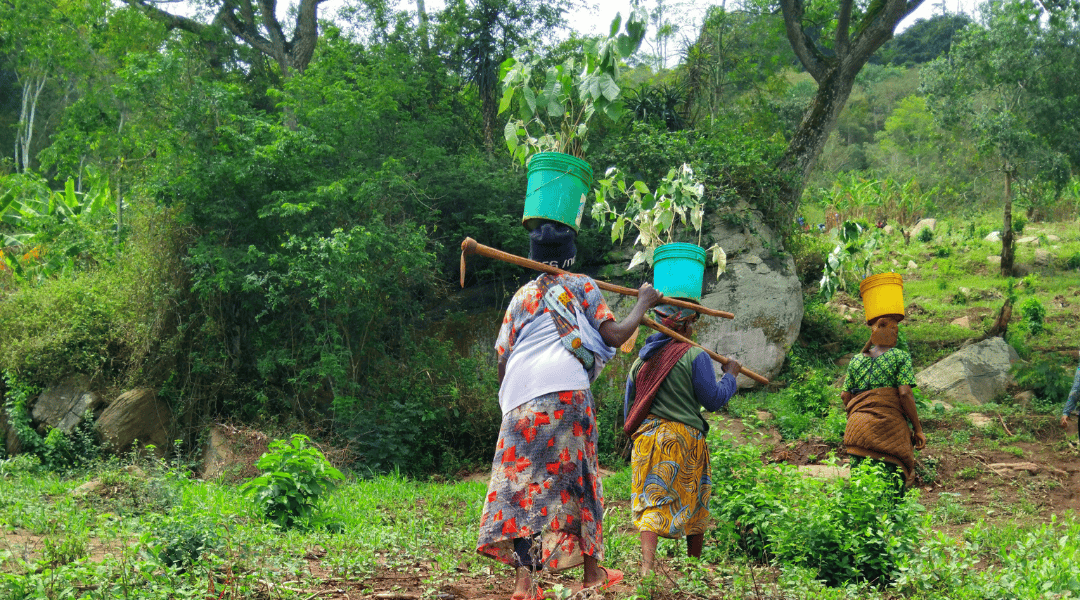
Community participation in tree planting activities
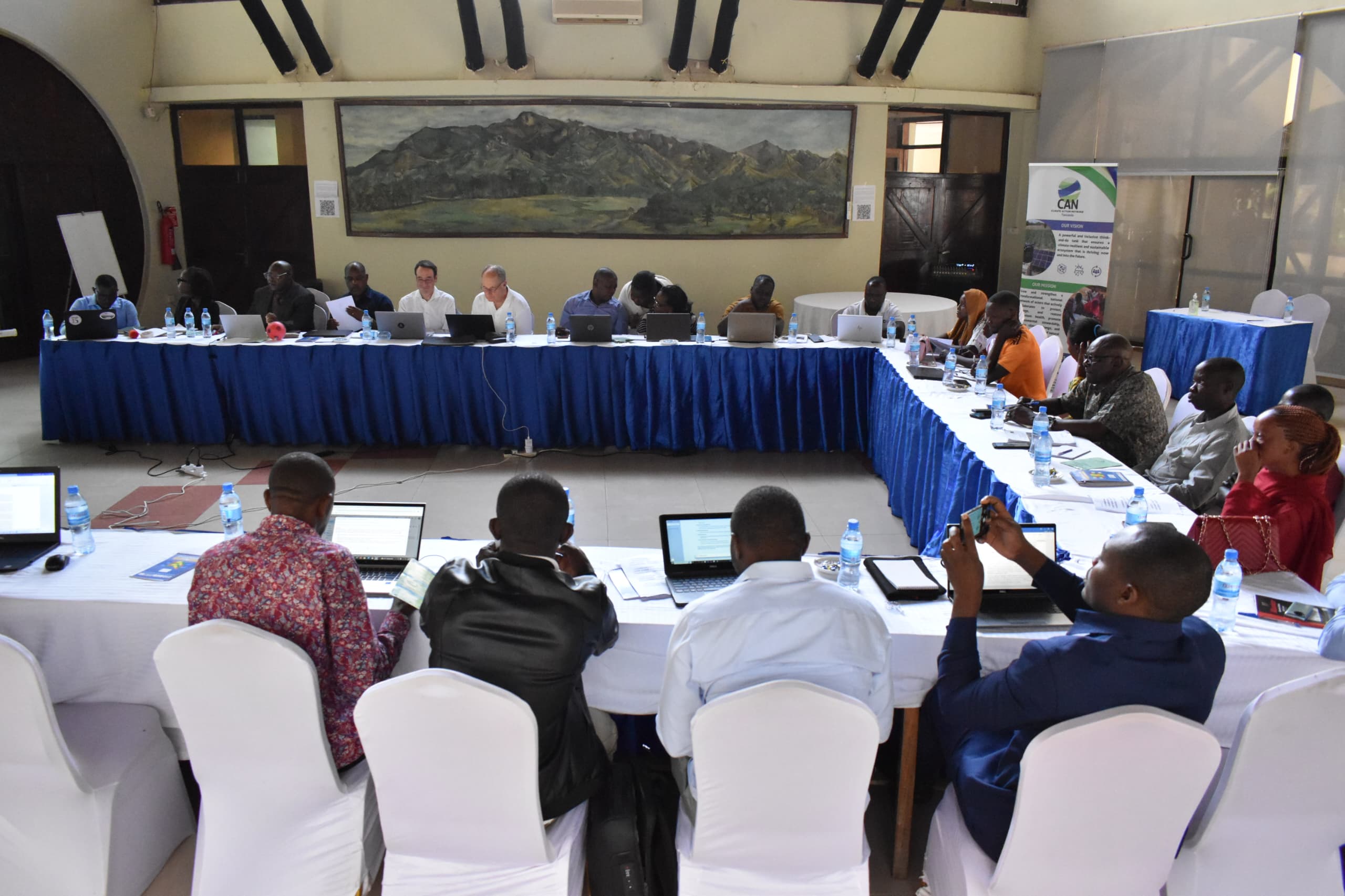
Second National Stakeholder Workshop to review the guideline for implementing forest-related Nature-based Solutions (NbS) to support Tanzania's Nationally Determined Contributions (NDCs).
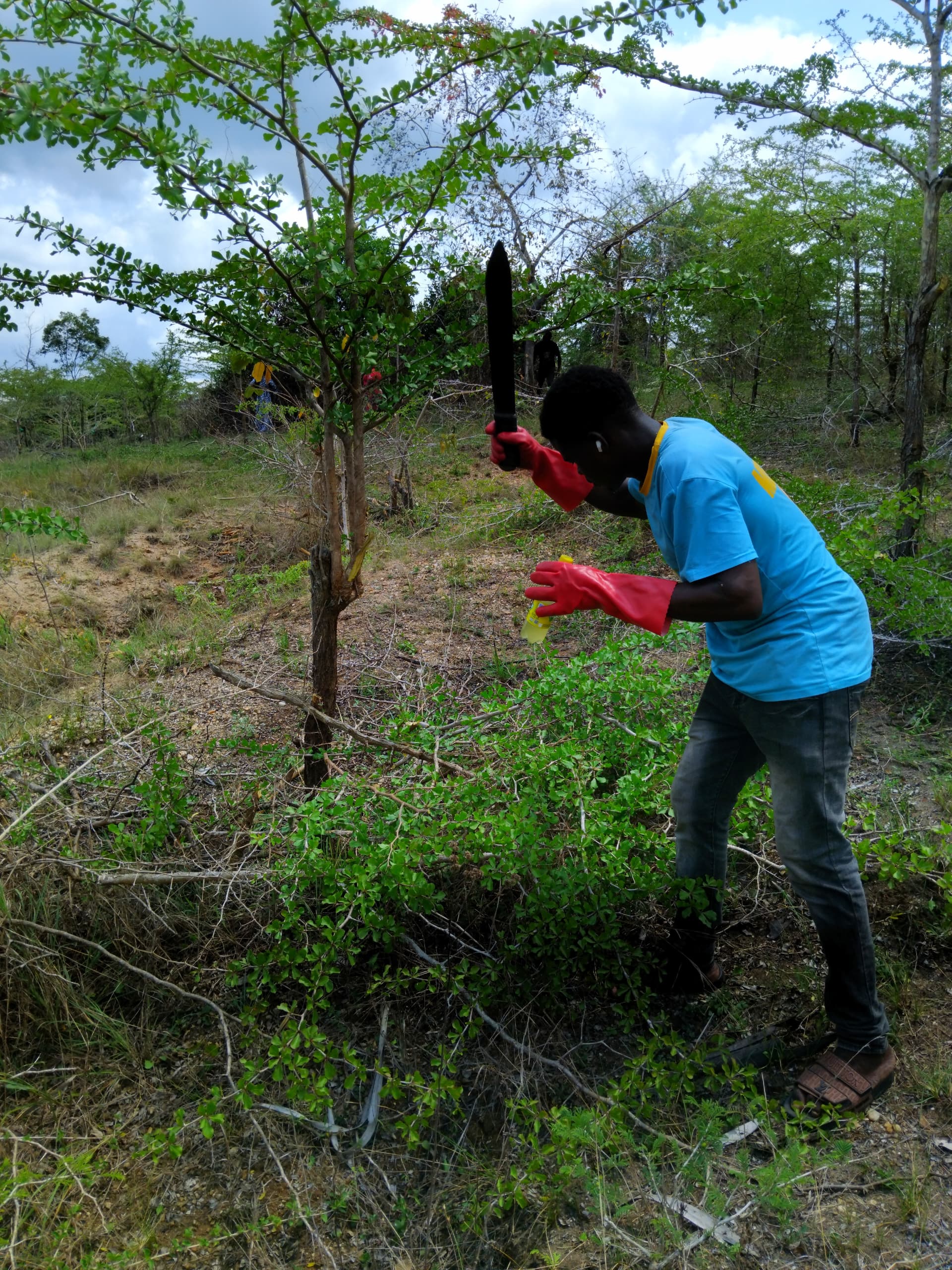
Farmer Managed Natural Regeneration (FMNR) to reduce the lower branches and number of stems to promote faster growth
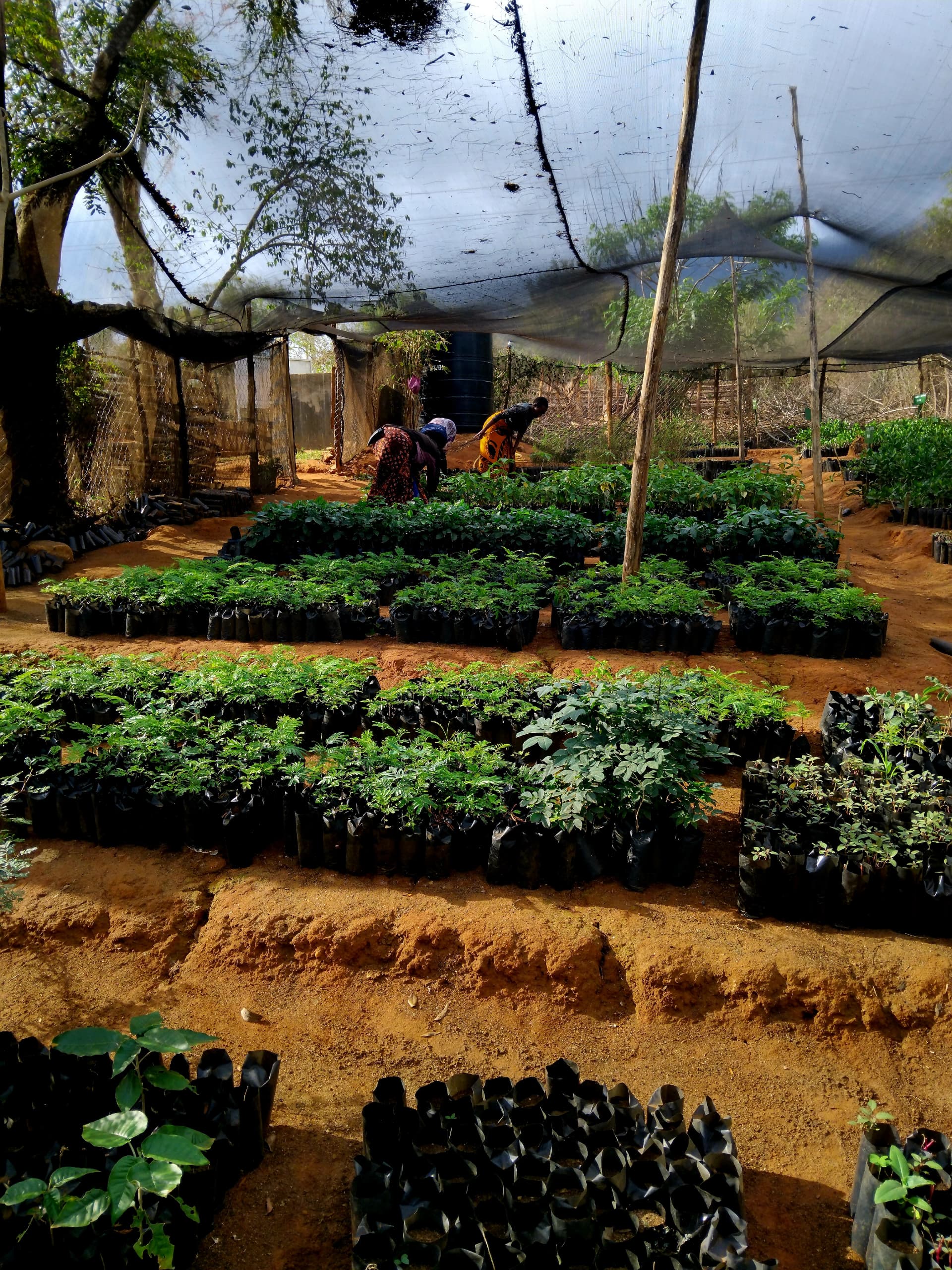
Seedling for restoration are raised in a community-established nursert
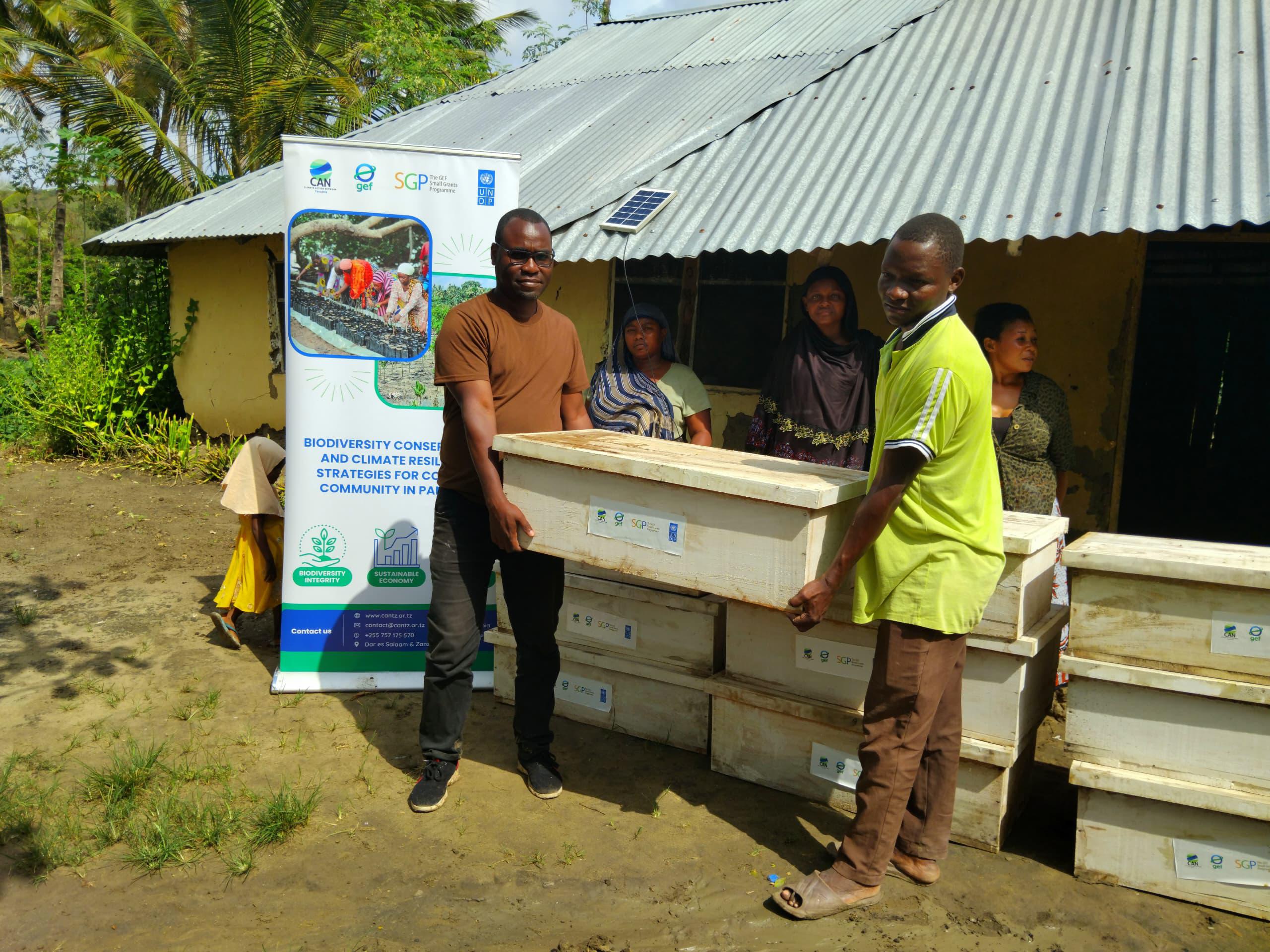
Supporting beekeeping initiatives in Same and Pangani
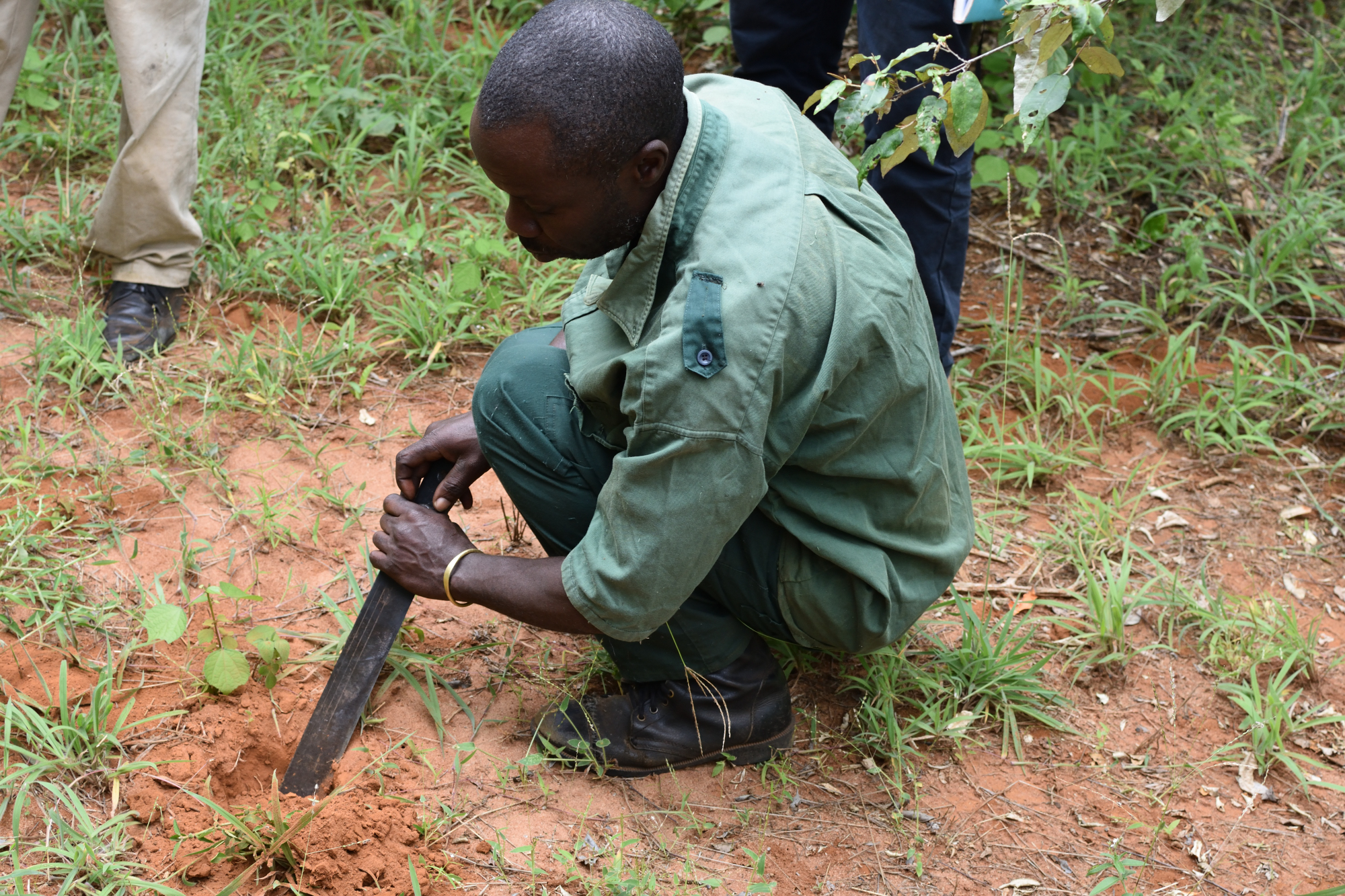
Taking soil assessments in Vumari Forest Reserve, Same District.
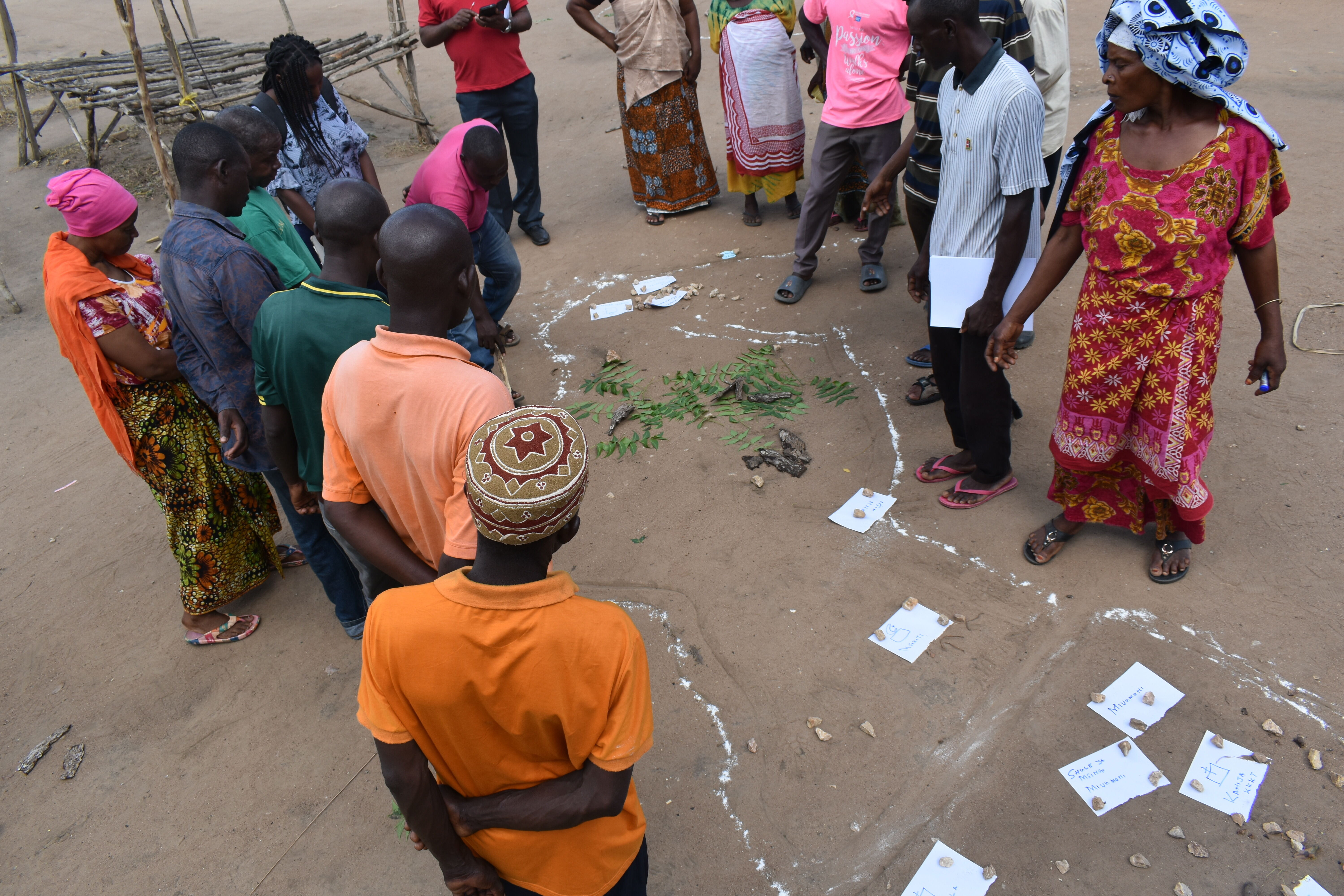
Participatory mapping of suitable areas for reforestation with local community members.
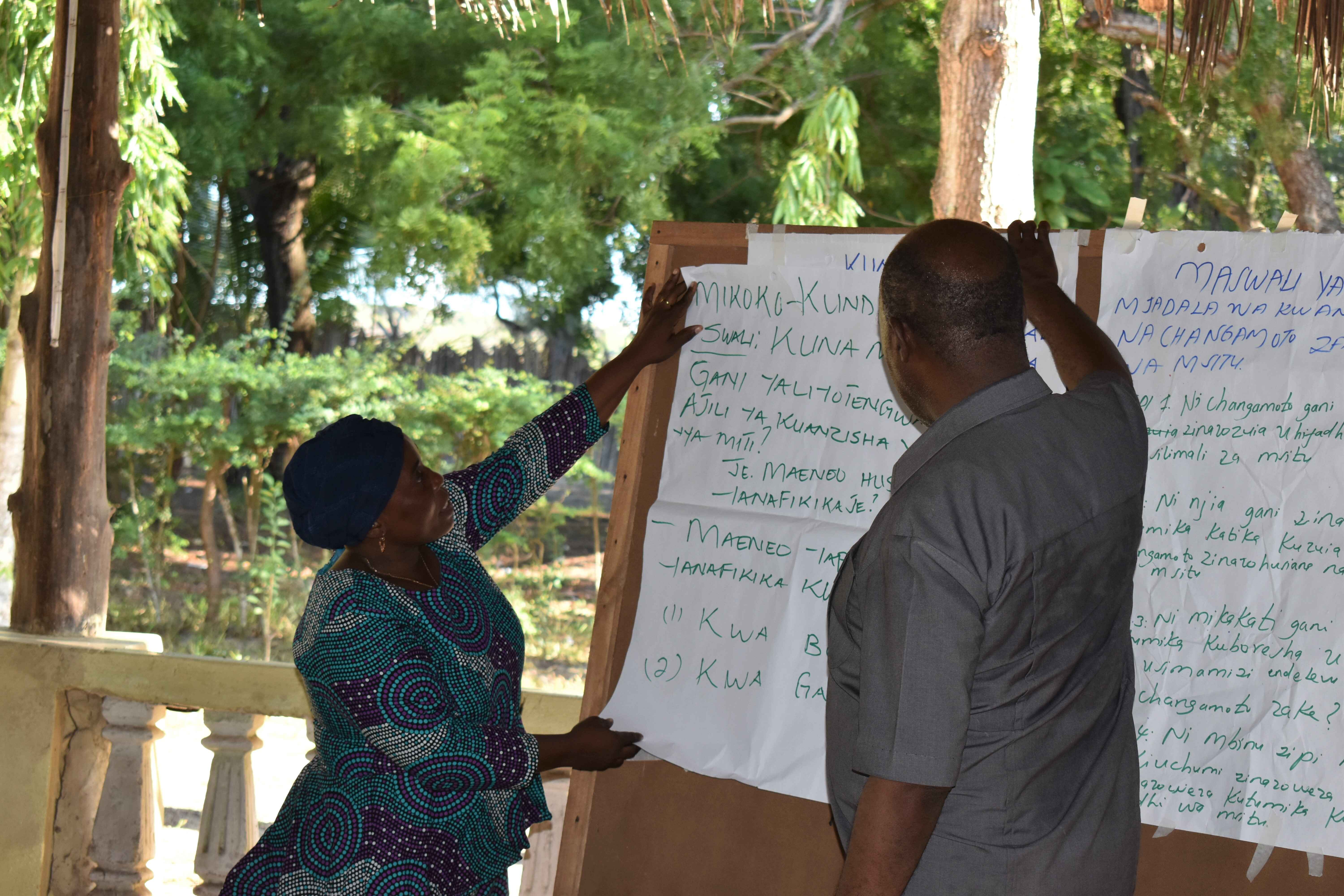
Discussing challenges of forest conservation and potential pathways to sustainable forest management practices with local stakeholders.
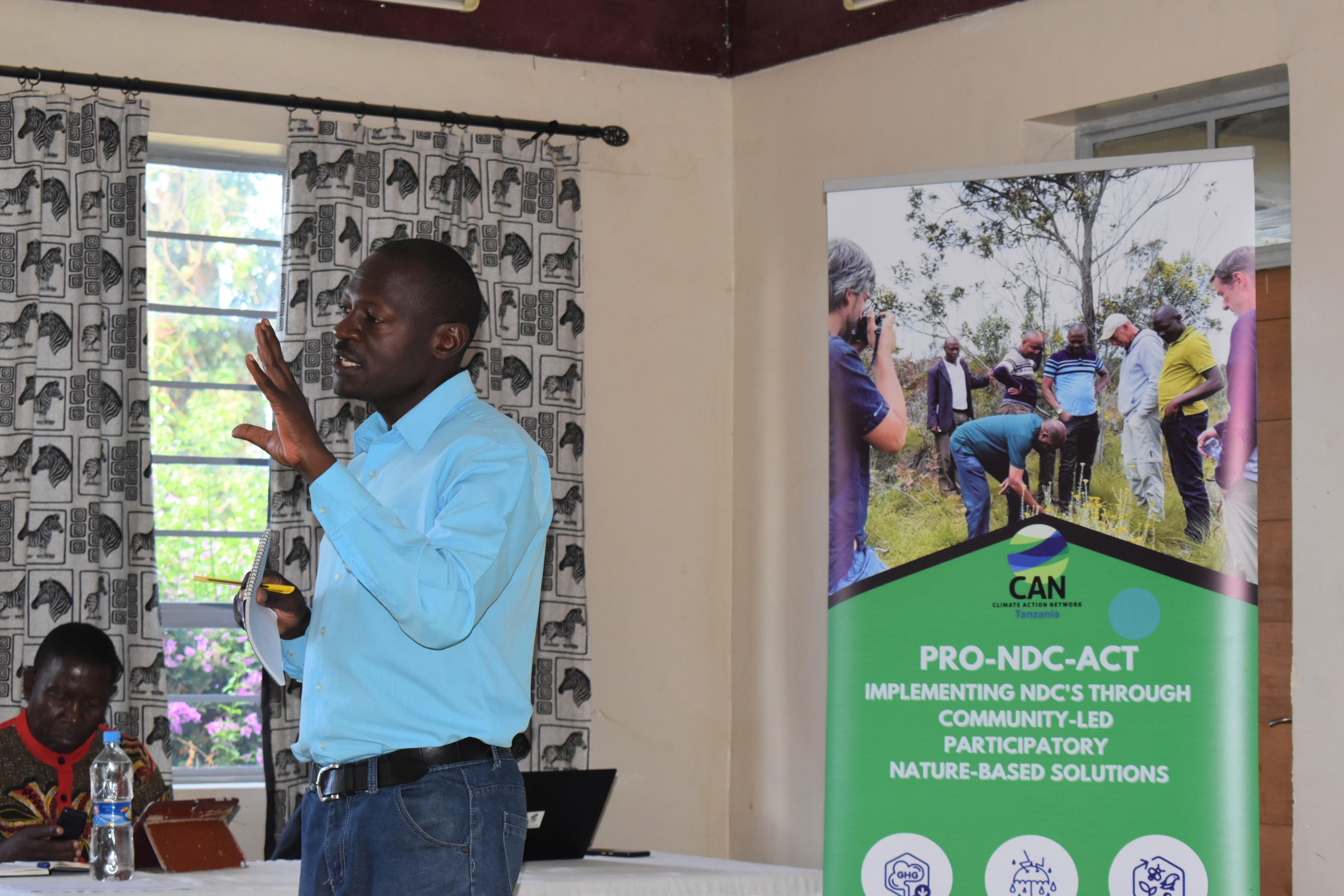
Training local community members about the importance of ecosystem conservation and local adaptation measures.
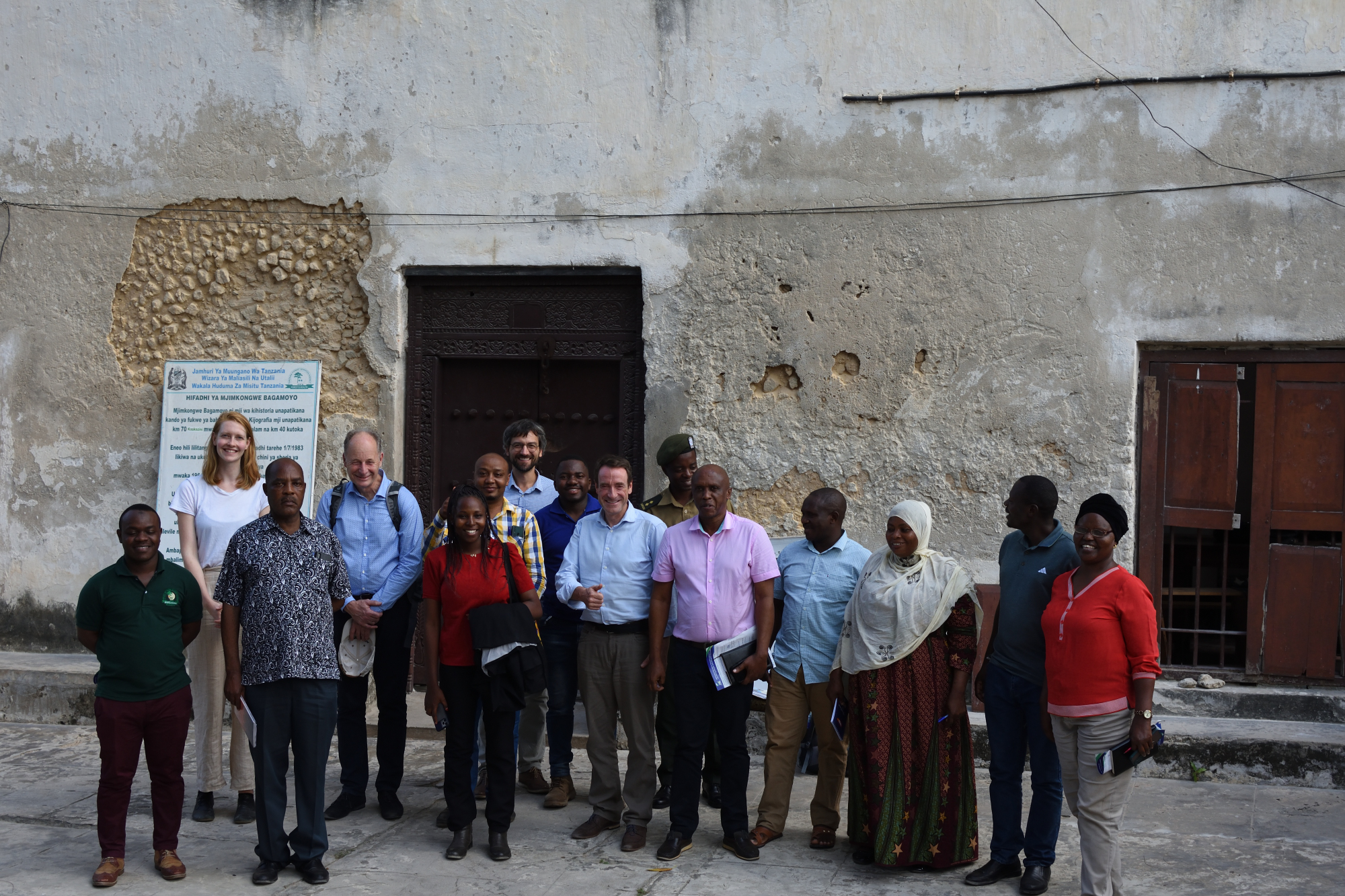
Meeting various members from district councils and TFS in order to introduce the project to relevant stakeholders.
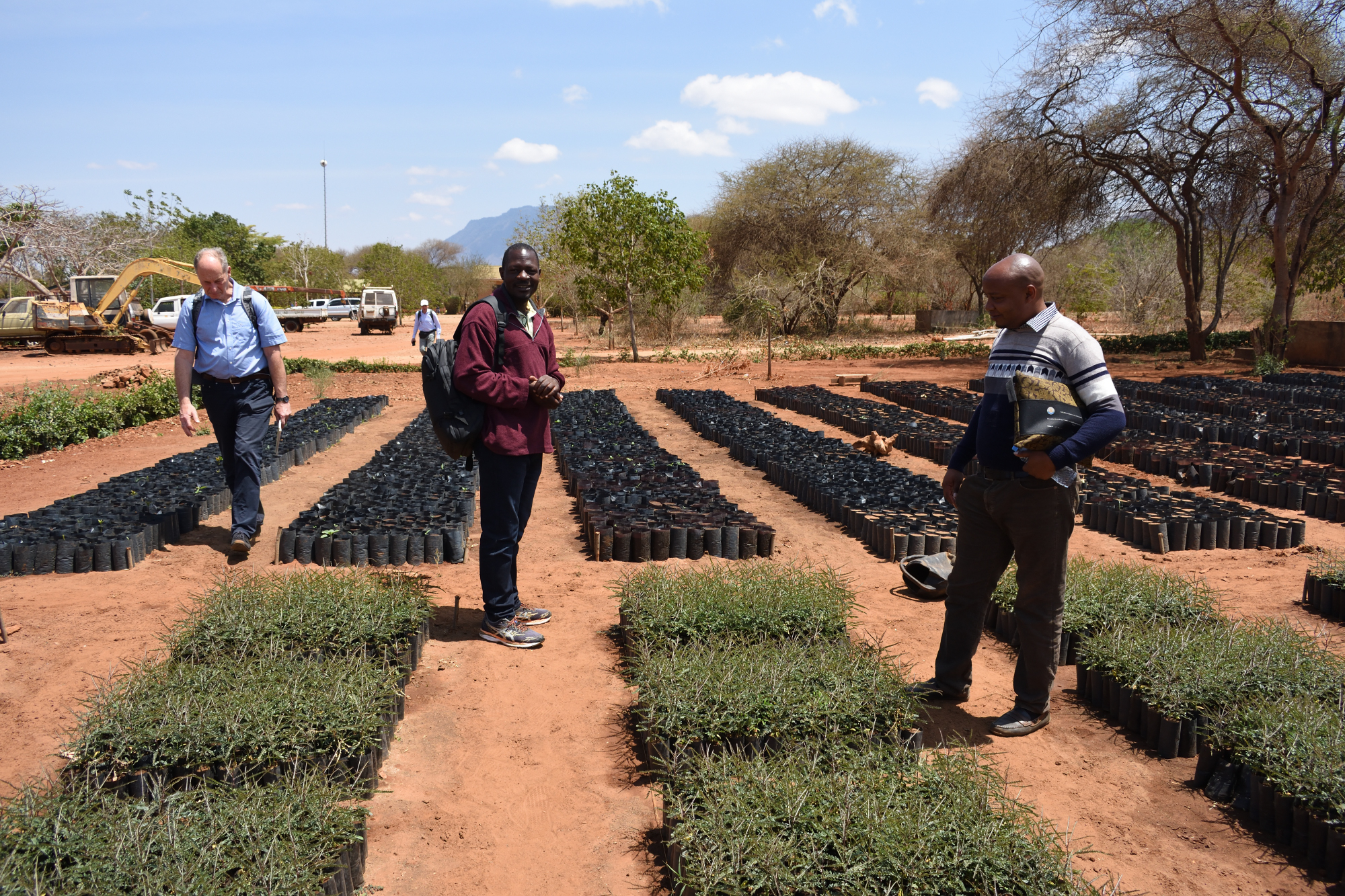
Investigating available tree nurseries for demonstration projects on reforestation and ecosystem restoration.
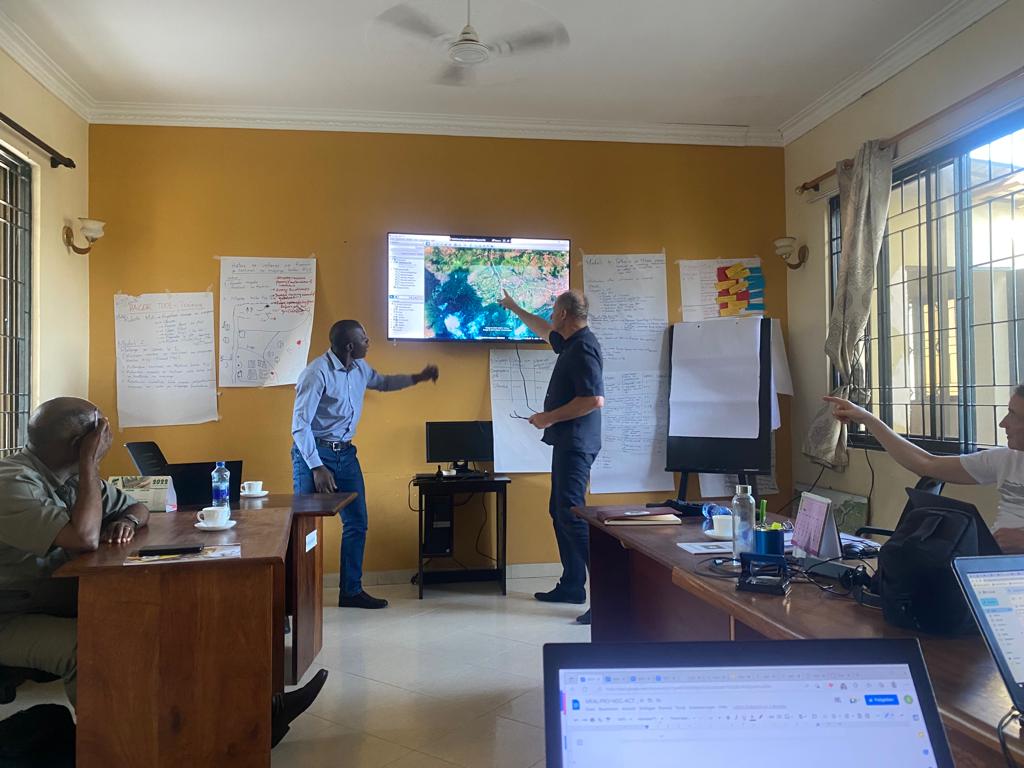
Evaluation and selection of target sites to be afforested under consideration of the site-specific soil and environmental conditions and expected climatic changes.
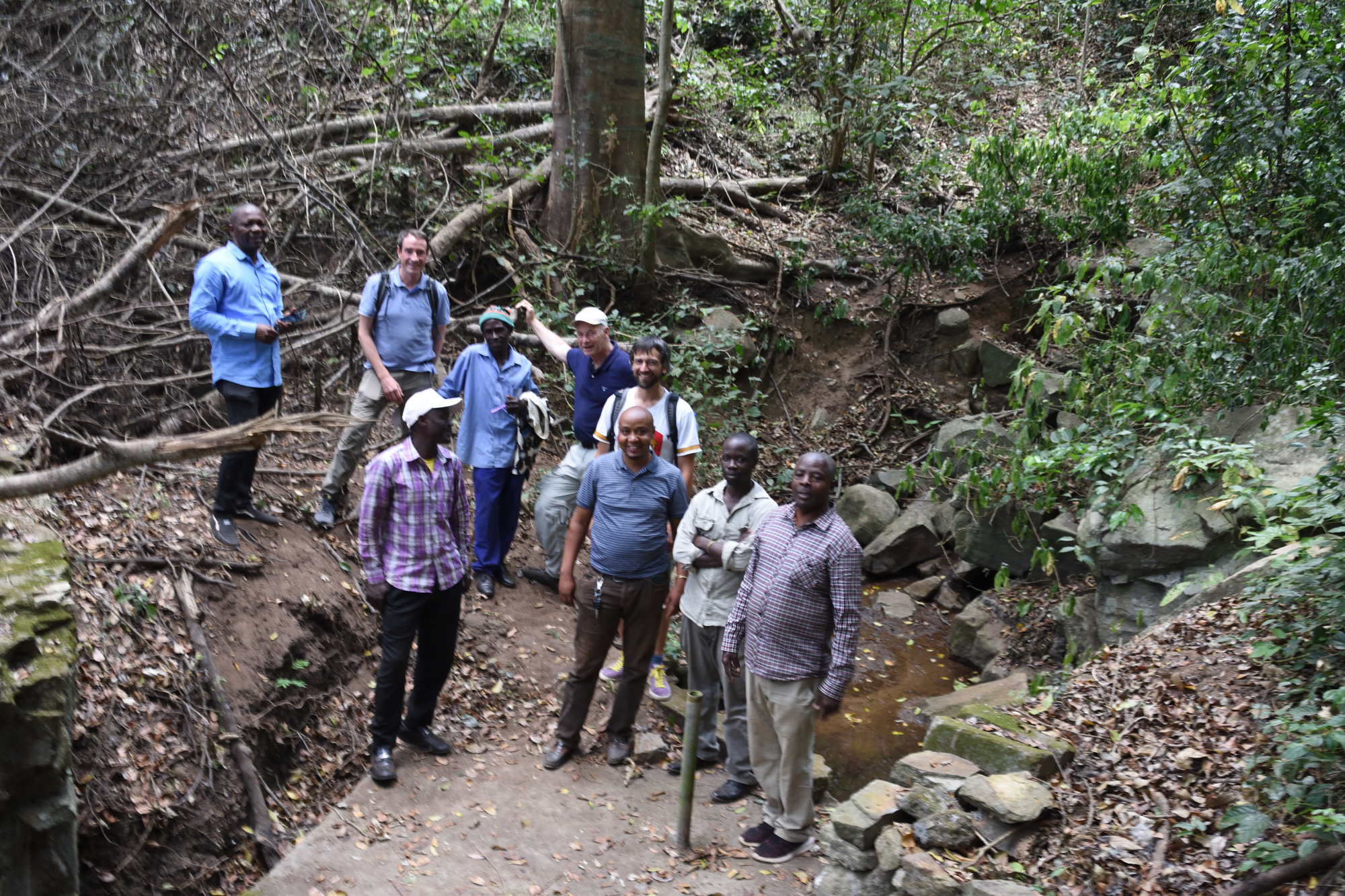
Conducting baseline studies on the target sites and collecting socio-economic and ecological background information data collection in the target regions for the site selection.

